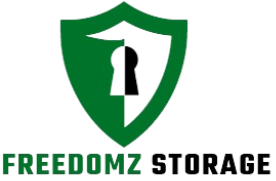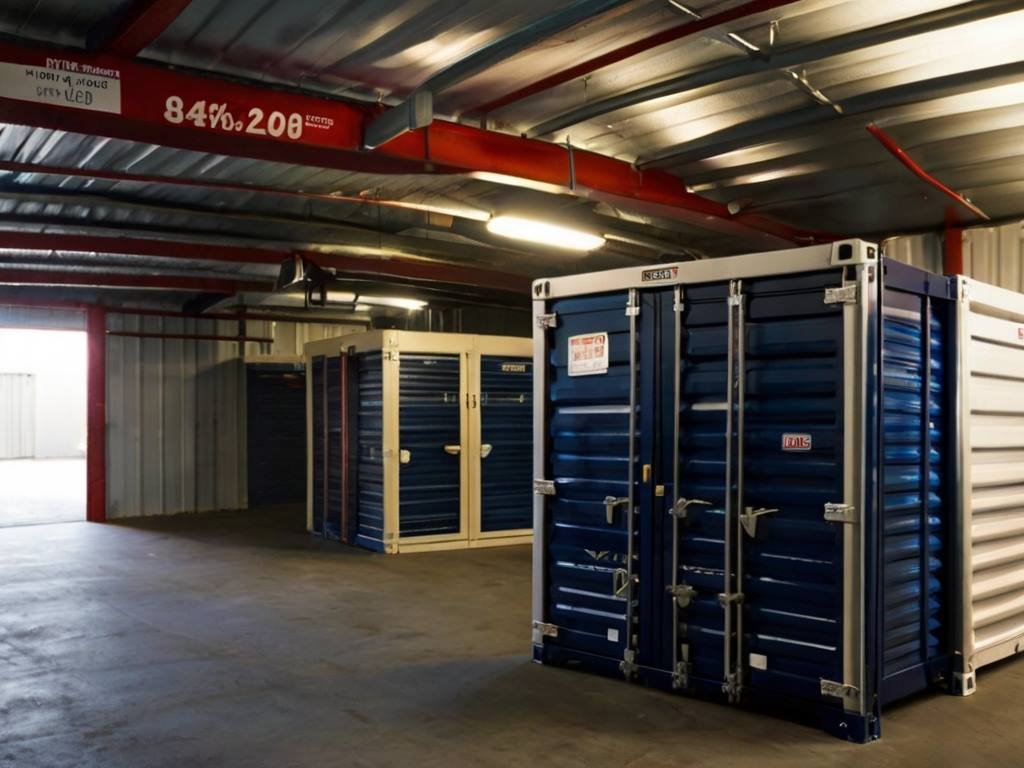In the maze of tax laws, every deduction counts. People frequently inquire about the tax consequences of different costs, and one particularly curious issue is, Are storage units tax deductible?
This blog seeks to solve this riddle by putting light on the complexities of storage unit expenditures and their possible tax deductions.
As we dig into the complexities of tax legislation, we’ll address often-asked questions. Continue reading to find out whether your storage unit charges qualify for tax deductions.
Understanding Storage Unit Expenses
Explore the diverse world of storage unit expenditures, from identifying frequent usage to learning about costs associated with renting a storage space.
Definition of Storage Units and Common Applications
Before getting into tax implications, let’s lay the groundwork by knowing what storage units are.
Storage units are rented places for storing personal possessions, such as furniture and seasonal items.
Storage facilities have become an essential part of contemporary life, being used for moving, downsizing, or as an extra room for objects that are not utilized daily.
Overview of Storage Unit Charge Costs
Renting a storage unit incurs a variety of expenses, including monthly rental fees, insurance, and sometimes additional fees for specific facilities like climate control.
Understanding these expenses is critical for determining tax consequences, since individual components may or may not be eligible for deductions.
The major goal of this blog is to discover if storage units are tax-deductible and to do so, we must investigate the complexities of tax regulations governing storage unit charges.
Question of Deductibility
Navigate the complexity of storage unit deductibility as we look at requirements, and implications, and are often asked the question: Is a storage unit tax deductible?
Criteria for Expense to Be Tax Deductible
To qualify for a tax deduction, the cost must fulfill certain requirements. Deductions are often permitted for costs that are required to generate income, are directly tied to business, or are essential for a taxpayer’s health.
Can storage units be claimed as a tax deduction?
To answer the popular question, the deductibility of storage unit expenses is determined by their purpose and relationship to income creation or company activities.
If a storage facility is only for personal use and has no direct relationship to income, it may be ineligible for a tax deduction.
Factors determining deductibility
Several criteria determine whether storage unit expenditures can be deductible. The main decision is if the storage unit is for personal or business usage.
Furthermore, the type of the objects held and the taxpayer’s circumstances play an important influence.
Specifics for Storage Unit Tax Deductions
Dive into the procedure of storage unit tax deductions, untangling complexities of tax rules and regulations to see if renting a storage unit can result in profitable deductions.
Detailed Examination of Tax Laws and Regulations
Navigating the complicated terrain of tax rules requires delving into precise requirements governing storage unit deductions.
Tax codes vary, and grasping shades is critical for making correct and lawful deduction claims.
Can You Deduct Storage Units on Taxes?
The obvious answer is that it depends. To be deducted, storage unit charges must fulfill standards established by the tax authorities.
Business-related storage requirements are more likely to be deductible than those for personal usage.
Is Renting a Storage Unit Tax Deductible?
If you need a storage facility for business purposes, you may be able to deduct the cost. Storage facilities are frequently used by businesses to keep merchandise, equipment, or company data, making them tax-deductible costs.
Is a Storage Unit Tax Deductible?
To determine if the storage unit is tax deductible, consider the primary purpose of storage. If it serves a genuine commercial function, such as storing goods or equipment, it may be eligible for deduction.
Are Storage Unit Expenses Tax Deductible?
When calculating storage unit expenditures, it is critical to distinguish between personal and business use.
Personal storage may not be tax deductible, but business-related storage expenditures may be.
Recordkeeping and Documentation
Master art of precise record-keeping and paperwork, which is critical for supporting storage unit expenditure deductions and exploring the complexity of tax preparation.
Importance of Keeping detailed records
Whether your storage unit expenditures are personal or business-related, keeping precise records is critical for effective tax deductions.
Clear paperwork gives evidence of the storage unit’s purpose and need, which is required to satisfy tax authorities.
Types of Documents Required
Certain sorts of paperwork are required to support deductions for storage unit expenses. Keep records of rental agreements, invoices, and receipts that clearly state the purpose of storage and its relationship to income-generating operations.
Tips for Document Organization and Storage
Organizing and keeping paperwork is equally crucial as possessing it. Create a system for categorizing and preserving receipts and agreements so they may be easily retrieved during tax preparation.
Proper organization not only speeds up the process but also assures that deductions are claimed correctly.
Real-life Scenarios and Examples of Deductibility
To clarify, consider real-world circumstances in which storage unit expenditures may or may not be tax deductible.
For example, a small company owner who stores products for online sales may be able to deduct storage charges, but someone keeping personal items during relocation may not.
Common Misconceptions and Pitfalls
There are various myths concerning storage unit deductions. Addressing these misunderstandings is critical to preventing people from filing false claims or ignoring genuine deductions.
As we move on to real-life examples, we emphasize the need to differentiate between personal and business-related storage expenditures to make accurate and legally valid deduction claims.
Expert Opinion and Advice
Gain important insights and expert assistance on storage unit deductibility from tax specialists who specialize in managing expenditures and navigating complex environments of tax regulations to make unique and educated decisions.
Citing Tax Professional Opinions
To offer a thorough perspective, examine the views of tax specialists on storage unit deductibility. Their insights can help you navigate the details of tax legislation and make more educated decisions.
Expert Advice for Optimizing Storage-Related Costs
Tax specialists may be able to give practical advice on how to optimize storage-related expenditures for tax reasons.
To optimize tax savings, consider strategies such as combining storage needs or taking advantage of business-related deductions.
While this blog provides helpful insights, you should seek individualized counsel from tax specialists.
Every person or organization has unique circumstances, and consultation with professionals ensures that tax rules are correctly interpreted and applied.
Wrap Up
Finally, the deductibility of storage units is determined by various variables, including storage’s purpose and relation to income-producing activities.
Individuals and organizations may manage the complexity of storage unit deductibility by comprehending tax-mandated requirements, keeping precise records, and obtaining professional help.
Remember, whether you’re wondering, Can you deduct storage units from taxes? or, Are storage units tax deductible? remaining educated and getting professional advice is critical to making informed decisions regarding prospective tax deductions.
Freedomz Storage is your go-to resource for optimizing storage unit deductibility and tax benefits.
We are committed to providing people and companies with thorough information on storage units and their tax implications.
We hope to provide our readers with the knowledge they need to make educated decisions by digging into the complexities of storage unit charges, deciphering the deductibility standards, and giving professional perspectives.
Our extensive guidelines aim to untangle the complexity of tax regulations, highlighting the significance of diligent record-keeping and expert guidance.

